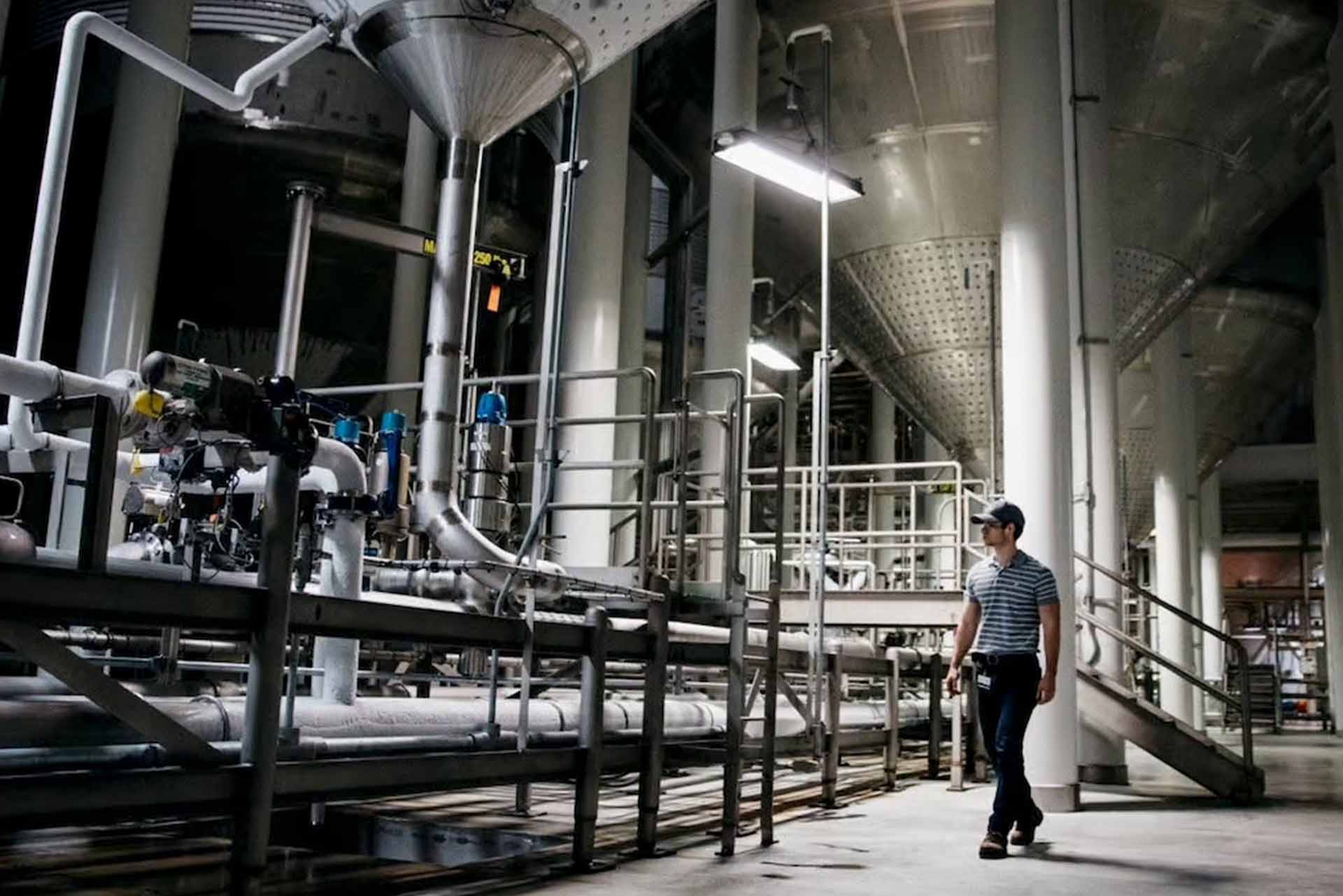For multiple reasons, interest in the production of non-animal proteins is on the rise. Among these incentives are the lower ecological impact, contrasted with the huge greenhouse gas emissions and deforestation associated with industrial livestock farming, and the fact that these production processes don’t cause harm to animals. With the rapid growth of the world population leading to a need for more efficient food systems, industry has been searching for a way to produce proteins as a commercial scale.
“There are many small biotech companies which are developing such alternative proteins, but almost all of them lack the expertise to scale up their processes.” – David De Schutter
“There are many small biotech companies which are developing such alternative proteins, but almost all of them lack the expertise to scale up their processes,” said David De Schutter, the head of AB InBev’s global innovation center Gitec, to Belgian newspaper De Standaard. “We however do possess this knowhow. As the world’s largest brewer, we know perfectly how to efficiently convert yeast in huge amounts of beer. In our brewery in Leuven, we have fermentation tanks of 400,000 liters.” The Gitec center, located across the AB InBev headquarters in Leuven, employs 122 scientists to develop new products and better brewing processes.
Programming yeasts to deliver proteins
Just as AB InBev uses yeasts to make beer, it now wants to put those single-celled microorganism to work to ‘brew’ proteins with the BioBrew project. “Yeasts are like small factories which can duplicate themselves quickly and convert substances into other ones,” explained De Schutter. Yeast cells are essential for making not only beer, but also for example wine, cheese, and bread. AB InBev itself possesses a collection of around 1,700 yeast strains, which are crucial for the flavors of its beers.
During a beer-brewing process, yeast is programmed to convert sugar into alcohol, but the BioBrew experts will program them in such a way that they deliver proteins instead. This kind of programming of microorganisms to create very specific products is called ‘precision fermentation’.
One full BioBrew fermentation tank can contain food equivalent to 5,000 cows or 300,000 chickens.
Once they are ready for their precise task, the yeast cells will be put in large fermentation vessels and fed with energy-rich sugar to jump-start the fermentation process. According to AB Inbev, one full BioBrew fermentation tank can contain food equivalent to 5,000 cows or 300,000 chickens. At the end of the process, the result can be purified until only protein powder is left, which can then be used as an ingredient by the food industry.
Plans for large production units
AB InBev started with the BioBrew project in 2019 and it quickly turned out to be a success. Part of this success is also due to collaborations with research centers in Belgium, such as the Flemish life sciences institute VIB, the spearhead cluster for the agri-food industry Flanders’ FOOD, and different Belgian universities.
The Belgian prime minister Alexander De Croo recently paid a visit to Gitec to get to know BioBrew. He was impressed by AB InBev’s ventures in the domain of alternative proteins. “Belgium is not just a country of beers; our researchers are also leaders in biotech,” said De Croo. “It’s impressive to see how one of our Belgian brewers is combining those assets and thus getting ahead of the competition.”
Read this article to find out how the Belgian SUPERYEAST project is improving beer, bread and bioethanol!
Apart from the research taking place in Leuven, AB InBev has together with a partner also set up a first pilot plant for proteins in Germany. Later, the plan is to build separate, large production units. David De Schutter said to De Standaard that he couldn’t share much about the timing and location of these installations, only that there will probably be four of them, and that the units would also be open to smaller companies developing animal-free proteins.


